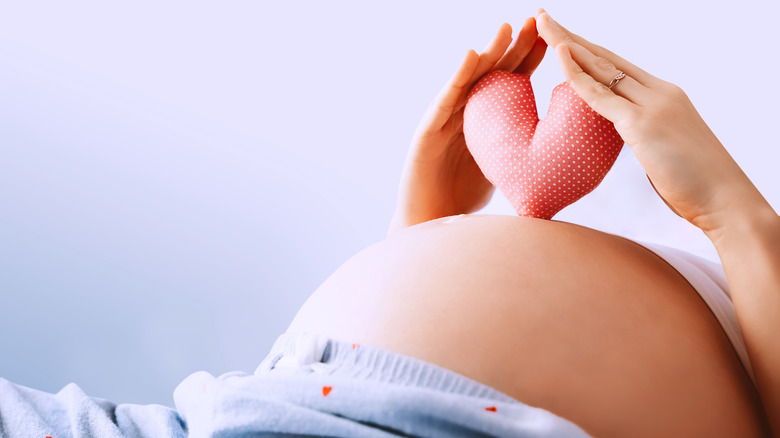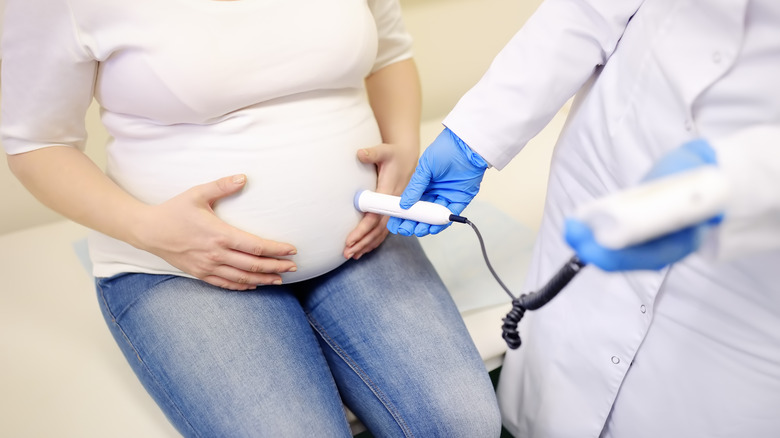How Early Can You Hear Your Baby's Heartbeat?
Pregnancy is an exciting time. Week by week, a developing fetus hits new milestones that delight parents around the world. At just six weeks gestation, a fetus already shows the beginnings of a mouth, ears, and nose while at seven weeks, little leg and arm nubs have begun to develop, per Baby Center. By the time the first trimester ends after 13 weeks, a fetus will measure the same length of a pea pod and boast tiny fingerprints on their fingers and the presence of all major organs.
When it comes to the development of the heart and circulatory system, you may be surprised to learn that this happens fairly early on. In fact, although other organs develop at the same time as the heart, it is the first to become fully functional, states Oregon State University. Teach Me Anatomy explains that the heart begins as a simple tube at three weeks following fertilization and development of the embryo. This tube grows in length over the following weeks while also folding in on itself to form various regions that will eventually become the chambers and parts of the fully formed heart.
By 22 days gestation, the heart is already moving blood through its primitive structures and circulating it through the tiny embryo (via Oregon State University). But at what point can you actually hear the baby's heartbeat for the first time? Here's what we know.
Your first ultrasound appointment
We know that by three weeks, your baby's tiny heart is already pumping blood but it won't be until a few weeks later that modern technological devices will be able to pick up the rhythm of the heartbeat. Healthline points out that halfway through the fifth week of pregnancy is as early as it gets for hearing a heartbeat as long as a transvaginal ultrasound device is used. The caveat here is that most doctors don't schedule the first ultrasound until at least the middle of the sixth week, so you may not get the opportunity to catch the first heartbeats as soon as they appear. Others might have you wait until the 11th week at the earliest before performing an ultrasound — this will depend on your unique circumstances and pregnancy history.
If you're able to get in for a six-week ultrasound, the American Pregnancy Association notes that you'll hear a heartbeat between 90 and 110 beats per minute. For reference, this is fairly rapid, as an adult's heart beats on average between 60 and 100 beats per minute, per the Mayo Clinic. In fact, a baby's heartbeat is only going to increase from here, measuring between 140 and 170 beats per minute by the time the ninth week rolls around.
As the pregnancy develops, different tools will be used to pick up the baby's heartbeat, including a fetal Doppler, a stethoscope, a fetoscope, and an abdominal ultrasound, explains Healthline.


